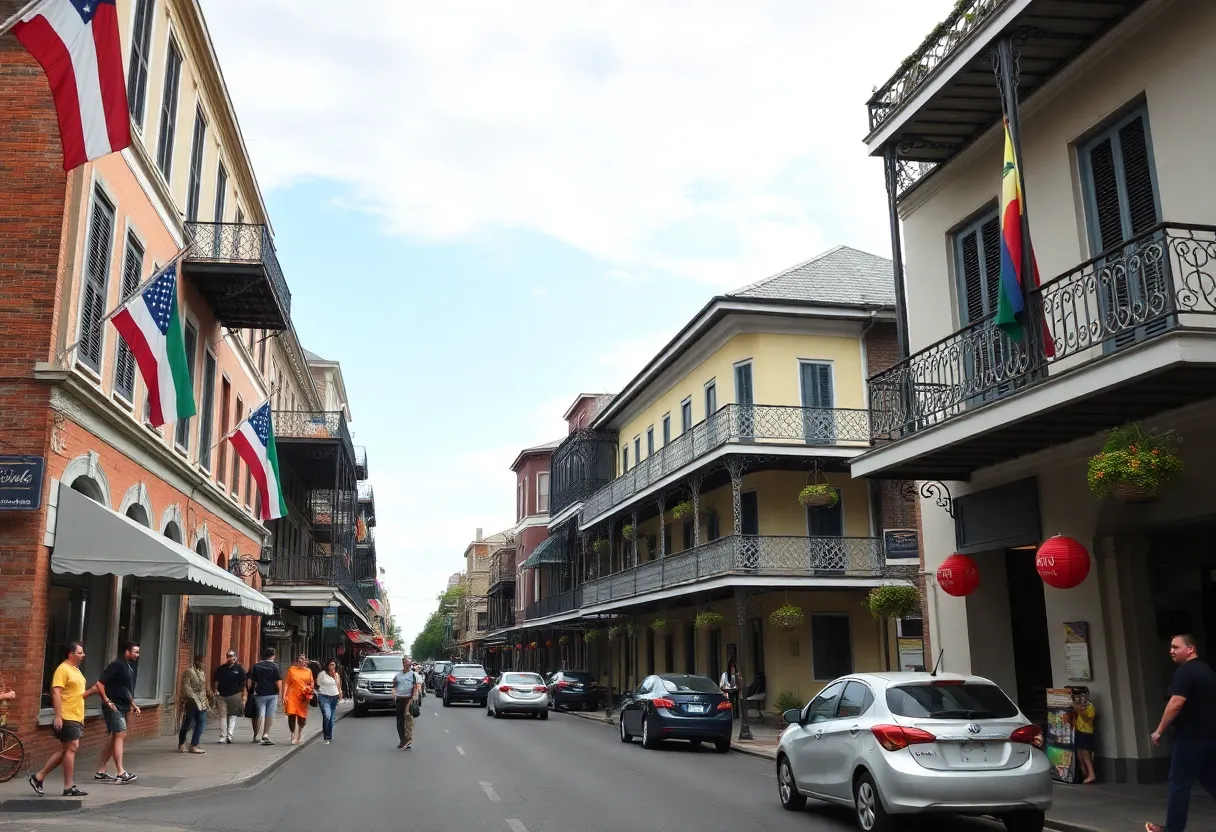News Summary
Recent discoveries reveal Pope Leo XIV’s significant ties to Louisiana’s Creole heritage, connecting him to the vibrant cultural legacy of New Orleans. His maternal lineage, tracing back to the late 19th century, reflects a rich history intertwined with the complexities of race and identity. This ancestry not only honors Pope Leo XIV’s family roots but also highlights the intricate narratives shaping contemporary discussions on race and community in America. Mayor LaToya Cantrell expressed pride in these connections, emphasizing inclusivity and cultural heritage.
New Orleans
Pope Leo XIV’s ancestry has unveiled his significant ties to Louisiana’s rich Creole heritage, linking him to a diverse cultural legacy rooted deeply in New Orleans. Born in Chicago to Louis Prevost and Mildred Martinez, the pope’s maternal lineage reveals that his mother, Mildred, has strong connections to the historic Creole community of Louisiana, enriching the narrative of modern-day social identities.
Mildred Martinez’s family history traces back to Joseph Martinez and Louise Baquie, her grandparents, who were residents of Louisiana during the late 19th century. Joseph and Louise were married at Our Lady of the Sacred Heart Church in Louisiana, which underscores the family’s longstanding ties to the region’s Catholic traditions. Census records indicate a complex racial background, with Joseph’s origins possibly linked to either Haiti or Louisiana, while Louise was born in the state, further entwining the family’s heritage with the cultural tapestry of New Orleans.
In the 1900 U.S. Census, Joseph and Louise were identified as Black, residing in the 7th Ward of New Orleans alongside their two children. However, a notable shift occurred by the 1910 Census, where they were classified as White. This change reflects a broader and often complicated racial history in Louisiana, indicative of the societal pressures during the Jim Crow era. By 1920, the family had relocated to Chicago, where Mildred was subsequently born, yet their Louisiana roots remained a vital strand of Pope Leo XIV’s ancestry.
Connections to Historical Figures
Pope Leo XIV’s heritage extends further through Louise Baquie’s lineage, connecting him to her parents, Ferdinand Baquie and Eugenie Grambois, both natives of Louisiana. Eugenie’s early baptism at St. Louis Cathedral in 1840 and the Baquie family’s residence in the 7th Ward during the 1870s reiterate the family’s long-standing presence in the region and its pivotal role in the area’s cultural development.
Scholars have noted that the evolution of racial descriptions within the pope’s ancestry serves as a historical lens into the transformations of societal perceptions regarding race and identity in America. Analysis suggests that this evolution reflects adaptations to shifts in social structuring during crucial eras in American history, particularly during and after the Civil War and in the subsequent Jim Crow period.
City’s Response
The mayor of New Orleans, LaToya Cantrell, has expressed pride in Pope Leo XIV’s connection to the city, emphasizing its diverse cultural and religious heritage. This connection plays a central role in fostering discussions around race, ancestry, and communal identity, highlighting the importance of inclusivity in modern conversations about heritage.
Representatives within the Black Catholic community view the pope’s diverse background as a source of inspiration that resonates with their experiences and expectations for a broader, more inclusive church. Pope Leo XIV’s ancestry serves as a potent reminder of the layers of American identity, reflecting the various cultural heritages interwoven throughout the nation’s history.
A Complex Legacy
The history of Creole identity in Louisiana began to evolve significantly after the Louisiana Purchase in 1803, impacting societal perspectives on race and identity. The aftermath of the Civil War and the implementation of stricter racial classifications significantly altered the conditions for Creoles of color in Louisiana, leading many to migrate to other regions in search of greater opportunities and acceptance.
Discussions surrounding Pope Leo XIV’s roots reveal a pressing need for a nuanced understanding of the complexities within American identity, demonstrating how cultural histories continue to shape contemporary discussions about race, community, and belonging. As Pope Leo XIV embraces his unique heritage, it encourages a re-examination of America’s rich, diverse history and the intricate narratives that arise from it.
Deeper Dive: News & Info About This Topic
HERE Resources
Additional Resources
- WDSU: New Orleans and Pope Leo XIV
- The New York Times: Pope Leo XIV’s Creole Roots
- WWLTV: Pope Leo XIV’s Grandparents
- ABC News: Pope Leo XIV’s Family Tree
- NOLA: First American Pope’s Roots in New Orleans
- Wikipedia: Creole
- Google Search: Pope Leo XIV New Orleans
- Google Scholar: Pope Leo XIV heritage
- Encyclopedia Britannica: Pope Leo XIV
- Google News: New Orleans Creole history

Author: STAFF HERE NEWORLEANS WRITER
The NEW ORLEANS STAFF WRITER represents the experienced team at HERENewOrleans.com, your go-to source for actionable local news and information in New Orleans, Orleans Parish, and beyond. Specializing in "news you can use," we cover essential topics like product reviews for personal and business needs, local business directories, politics, real estate trends, neighborhood insights, and state news affecting the area—with deep expertise drawn from years of dedicated reporting and strong community input, including local press releases and business updates. We deliver top reporting on high-value events such as French Quarter Festival, New Orleans Jazz & Heritage Festival, and Essence Music Festival. Our coverage extends to key organizations like the New Orleans Chamber of Commerce and Greater New Orleans, Inc., plus leading businesses in energy, healthcare, and education that power the local economy such as Entergy, Ochsner Health, and Tulane University. As part of the broader HERE network, including HEREShreveport.com, we provide comprehensive, credible insights into Louisiana's dynamic landscape.

